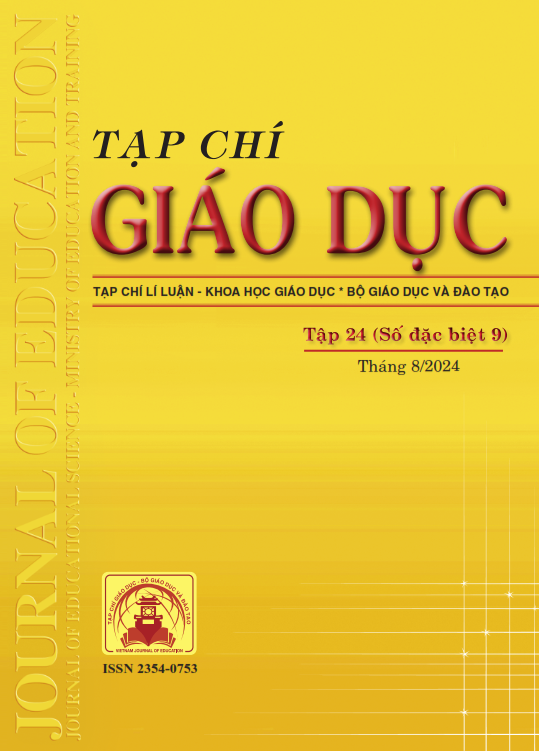Giáo dục kĩ thuật số - lợi ích và thách thức trong các trường đại học
Tóm tắt
In the current digital era, the application of digital technology in education plays a very important role in the teaching and learning of educational institutions, especially higher education institutions. Digital education has created a diverse, rich and intelligent educational environment. The outstanding development of information technology and telecommunications has reduced space and time barriers, creating favorable conditions for connection between teachers and learners, providing rich learning materials and open worldwide. This has opened up many opportunities and benefits in education for lecturers and students. Besides, some challenges for digital education activities still exist. The study has synthesized and analyzed the benefits of applying digital technology in education as well as the challenges of digital education for universities in the current digital era.
Tài liệu tham khảo
Đỗ Văn Hùng (2016). Tài nguyên giáo dục mở và nhận diện các yếu tố tác động đến việc phát triển tài nguyên giáo dục mở tại Việt Nam. Tạp chí Thư viện Việt Nam, 4, 25-34; 52.
George, B., & Robert, W. F. (2016). Technology and Education: Computers, Software, and the Internet. Handbook of the Economics of Education, 5, 239-280.
Johnson, A. M., Jacovina, M. E., Russell, D. G., & Soto, C. M. (2016). Challenges and Solutions when Using Technologies in the Classroom. In S. A. Crossley & D. S. McNamara (Eds.), Adaptive Educational Technologies for Literacy Instruction (1st ed., pp. 13-30). Routledge. https://doi.org/10.4324/9781315647500-2
Krohn, R. (2003). The role of technology in education. Journal of Healthcare Information Management, 17(3), 28-30. Lase, D. (2019). Education and Industrial Revolution 4.0. Journal Handayan, 10(1), 48-62. Lien Cao (2023). Benefits and challenges of using LMS in blended learning: Views from EFL teachers and students at a Vietnamese public university. International Journal of TESOL & Education, 3(3), 78-100. http://doi.org/10.54855/ijte.23335 Lynn, T. G., Conway, E., & Rosati, P. (2022). Digital Education. In Digital Transformation of Rural Societies and Economies. Palgrave Macmillan Publisher. http://doi.org/10.1007/978-3-030-91247-5_7
Manoj, D. (2017). Technology Mediated Media Education: A Case Study of E-Learning. Initiatives in India. Journal of Mass Communication & Journalism, 07(03), 95-100. https://doi.org/10.4172/2165-7912.1000337 McGraw Hill (2016). New Survey Data: Four Out of Five College Students Say Digital Learning Technology Helps Improve Their Grades1. https://www.mheducation.com/news-insights/press-releases/2016-digital-study-trends-survey.html Nguyễn Đắc Hưng (2017). Cuộc cách mạng công nghiệp lần thứ tư và vấn đề đặt ra với giáo dục Việt Nam. NXB Quân đội nhân dân.
Nguyen Thi Tuyen (2021). Advantages and disadvantages of online teaching in the current period. Teaching and Learning Today, 1(9), 22-25. Sharma, P. (2019). Digital Revolution of Education 4.0. International Journal of Engineering and Advanced Technology, 9(2), 3558-3564. UNESCO (2024). What you need to know about digital learning and transformation of education. https://www.unesco.org/en/digital-education/need-know
Tải xuống
Đã Xuất bản
Cách trích dẫn
Số
Chuyên mục
Giấy phép

Tác phẩm này được cấp phép theo Ghi nhận tác giả của Creative Commons Giấy phép quốc tế 4.0 .












